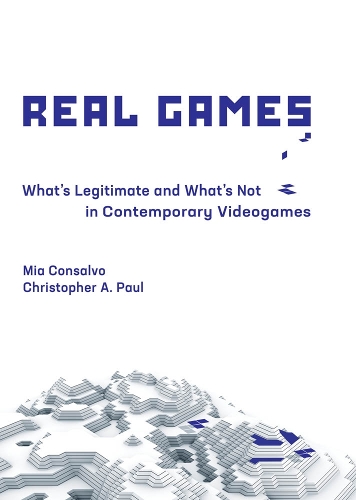
Real Games: What's Legitimate and What's Not in Contemporary Videogames
(Hardback)
Publishing Details
Real Games: What's Legitimate and What's Not in Contemporary Videogames
By (Author) Mia Consalvo
By (author) Christopher A. Paul
MIT Press Ltd
MIT Press
1st October 2019
United States
Classifications
General
Non Fiction
794.8
Physical Properties
Hardback
224
Width 137mm, Height 203mm, Spine 21mm
Description
How we talk about games as real or not-real, and how that shapes what games are made and who is invited to play them.In videogame criticism, the worst insult might be "That's not a real game!" For example, "That's not a real game, it's on Facebook!" and "That's not a real game, it's a walking simulator!" But how do people judge what is a real game and what is not-what features establish a game's gameness In this engaging book, Mia Consalvo and Christopher Paul examine the debates about the realness or not-realness of videogames and find that these discussions shape what games get made and who is invited to play them. Consalvo and Paul look at three main areas often viewed as determining a game's legitimacy- the game's pedigree (its developer), the content of the game itself, and the game's payment structure. They find, among other things, that even developers with a track record are viewed with suspicion if their games are on suspect platforms. They investigate game elements that are potentially troublesome for a game's gameness, including genres, visual aesthetics, platform, and perceived difficulty. And they explore payment models, particularly free-to-play-held by some to be a marker of illegitimacy. Finally, they examine the debate around such so-called walking simulators as Dear Esther and Gone Home. And finally, they consider what purpose is served by labeling certain games"real."
Author Bio
Mia Consalvo is Professor and Canada Research Chair in Game Studies and Design in the Department of Communication Studies at Concordia University in Montreal. She is the author of Cheating- Gaining Advantage in Video Games and Atari to Zelda- Japan's Videogames in Global Contexts, both published by the MIT Press. Christopher A. Paul is Associate Professor of Communication and Chair of the Department of Communication at Seattle University. He is the author of Wordplay and the Discourse of Video Games and The Toxic Meritocracy of Video Games.
